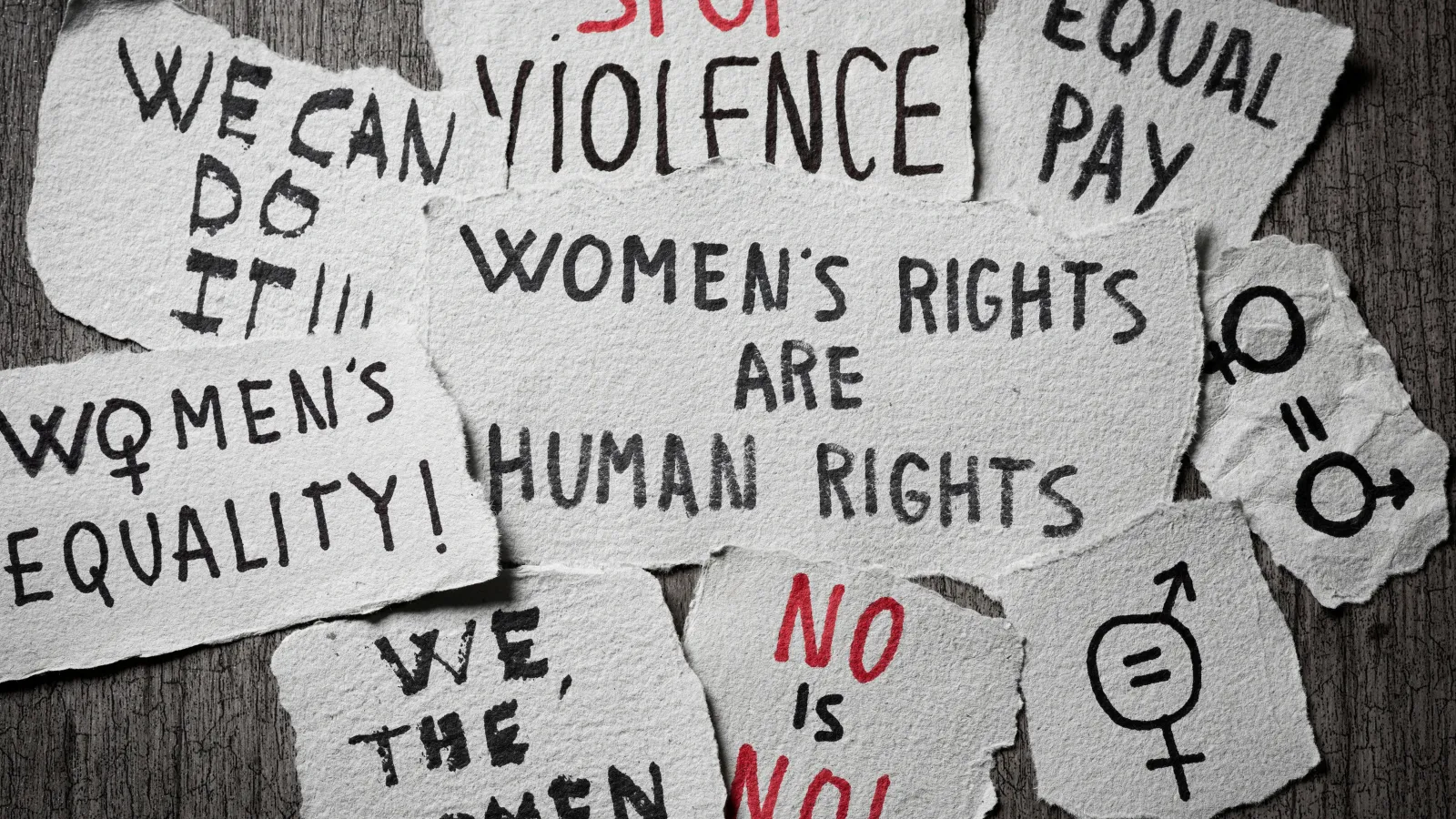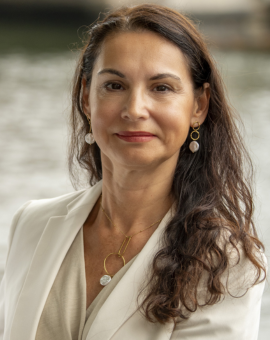Gender equality and the Summit for Democracy

Political gender equality is a central pillar of democracy, as all people, independently of gender, should have an equal say in political representation and decision-making. In practice, democracies are generally better at guaranteeing gender equality than most non-democratic regimes. According to International IDEA’s Global State of Democracy Indices, 41 per cent of democracies have high levels of gender equality, while this is the case in only two of the world’s authoritarian regimes (Belarus and Cuba). The democracies with low levels of gender equality are also exceptional (only four, all weak democracies - Iraq, Lebanon, Solomon Islands and Papua New Guinea). Low levels of gender equality are much more common in non-democracies – more than one third of them fall into this category.
Despite more than half the countries in the world being democracies of some form, levels of political gender equality have not kept pace with democratic progress. In 2022, only 26 per cent of legislators in the world are women, according to the Inter-Parliamentary Union. At the current rate, gender parity will not be achieved until 2062, according to International IDEA’s estimate. The proportion of women heads of state is even lower. In 2022, only 19 countries in the world have women in the highest office of executive power. Of these, all except four are democracies. Moreover, as global democratic progress is threatened by rising authoritarianism and democratic backsliding, fragile levels of gender equality, further weakened by the pandemic, are at risk of more setbacks, as gender is increasingly used as a weapon in such processes.
Inequality in gender representation was mirrored at the Summit for Democracy convened by the US administration in December 2021, to galvanize countries around a global democracy agenda. Of the 98 official statements made by countries, only 11 were made by women - 12 when taking into account the statement by the European Commission (International IDEA).
While women were underrepresented among the speakers, gender equality ranked higher in the discourse of political leaders present at the Summit. More than a third of official statements made reference to the importance of guaranteeing gender equality. Among the aspirational commitments to strengthen democracy at home, promoting gender equality ranked as a third priority after fighting corruption and countering racism and discrimination. Among efforts to strengthen democracy abroad, gender equality ranked high (fifth priority), although not as high as for domestic efforts, with issues such as media freedom, technology and democracy, corruption and human rights coming out on top (International IDEA).

In follow up to the Summit, countries were asked to turn their official statements into written commitments to strengthen democracy, with progress reports to be delivered at the second Summit at the end of 2022. Three months after the Summit, less than half the countries attending the Summit have made their written commitments publicly available. If the 13 pending final publications are added, it is still just above half (57%) of attending countries – a total of 56 countries out of 98.
While the number of submitted commitments is disappointingly low, gender equality again featured high on the agenda of the written commitments, with over half (53 per cent) of all countries making such references. 17 countries included commitments to strengthen gender equality at home, while 15 countries promised to promote gender equality abroad.

Commitments varied in specificity and measures, but efforts to fight gender-based violence topped the list both at home and abroad, rightly targeting a scourge that has grown during prolonged pandemic lockdowns. Programmes to protect and promote the rights of women and girls came second, followed by commitments to strengthen women’s political participation and representation, all areas in dire need of a boost. Measures proposed at home ranged from national strategies or action plans (Belgium and Georgia on Gender-Based Violence; Croatia and the United States on Gender Equality; Slovenia on Equal Opportunities; Greece, Georgia and Cyprus on women, peace and security). New institutional structures were mentioned in Brazil (Ministry of Women, Family and Human Rights), a National Coordination Body on gender-based violence (Cyprus) or a Gender Policy Council (United States). Revised or new legislation was proposed by Mauritius (as part of electoral reforms) and Nepal (on gender-based violence), while Ukraine committed to ratify the Istanbul Convention. Efforts to strengthen women’s equal opportunities in the economic sphere were also included by countries such as Cyprus, Germany, Georgia, Slovenia, Taiwan.
International commitments in support of gender equality were also articulated by a number of countries, beyond those that implement a feminist foreign policy (ie Canada, Norway, Spain, Sweden). International commitments focused on strengthening women’s role in the peace and security agenda (Cyprus, Germany, and Ukraine), gendered development cooperation (Croatia, Norway, Spain) the gendered dimension of technology, online engagement and cybersecurity (Canada, Finland, United States). The United States also announced up to $33.5 million to launch the Advancing Women’s and Girls’ Civic and Political Leadership Initiative, to promote women’s rights and civic and political leadership and representation. Other interesting approaches included Canada’s gender-lens on issues such as cybersecurity and anti-corruption efforts, a dimension often forgotten in those contexts.
Will these commitments contribute to radically boost the gender equality agenda and help chart the way for a world in which women have the same opportunities as men in all spheres of life? Hardly. The countries that made commitments on gender equality in their own countries are already among the more gender-equal countries in the world, with 10 out of 17 with high levels of gender equality and the remaining six ranking mid-range, according to International IDEA’s Global State of Democracy Indices. None of them scored low on this indicator. However, on the positive side, Croatia, Cyprus, Slovakia and Slovenia, that rank among the bottom 10 countries with the lowest levels of gender equality in the European Union made commitments on gender equality, showing political will to address this imbalance.
However, the countries with the lowest levels of gender equality in the world either did not show up at the Summit (Papua New Guinea, Solomon Islands) or did not submit any written commitments (Iraq) or were not invited at all (most of the non-democratic regimes). Because of its voluntary nature, short-term timeline and focus on democracies only, the Summit in its current format, will thus fail to address the most pressing gender imbalances in the world. A similar argument may be made for the most pressing democratic challenges, which may not be adequately tackled by the Summit alone because it leaves out those countries that are ailing the most democratically and where little political will exists to address the shortcomings. However, despite its inherent weaknesses, the Summits for Democracy can play other important roles. They help to place democracy at the center of the global agenda and gender equality as one of its central pillars. They can complement other global initiatives such as the 2030 Agenda, which do not articulate the linkage to democracy as clearly. They should be seen as a process, not an event, which allows a novel space for dialogue and exchange of good democratic practices and innovations across democracies in the North and South, and across older and newer democracies. They also provide a platform that civil society, the media, and other actors can use to advocate and press for change and more ambitious reform agendas going forward. Everyone stands to gain from such efforts. It is time to get to work.




